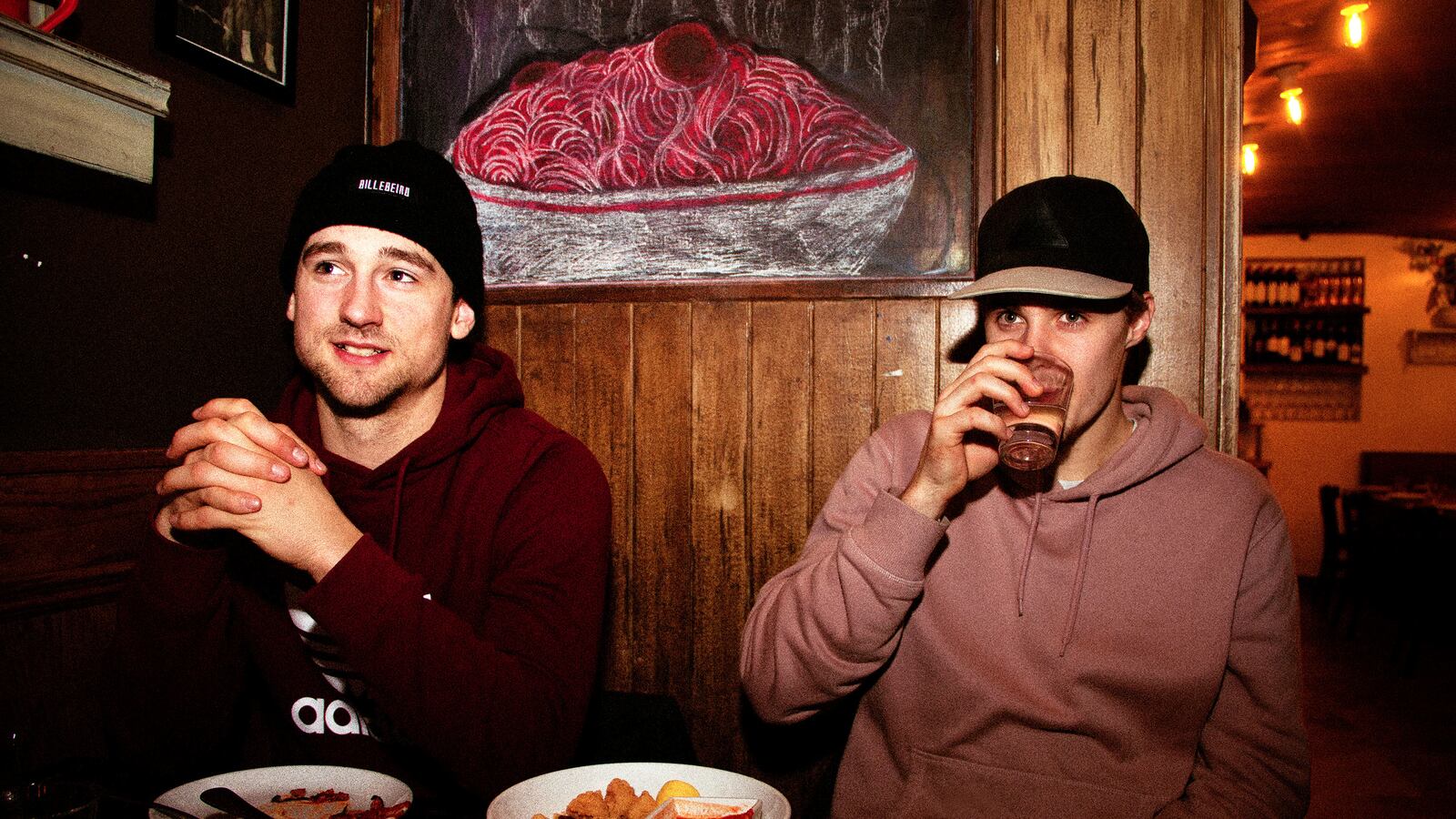What makes hockey fun to watch and play is that the sport is as unpredictable as it is thrilling. Each game can turn on a single slapshot and the high-tempo action requires a rare combination of speed and intensity.
But when it comes to life off the ice, things are a lot more predictable. I recently sat down with some of the youngest New York Rangers, defenseman Neal Pionk (24 years old) and center Brett Howden (21 years old) for what was supposed to be a late lunch at trendy Italian restaurant, Rubirosa, on Mulberry Street. But the teammates, who are also roommates, weren’t very hungry—they had already eaten at the rink.
As it turns out, that’s pretty standard for them. During the season, their lives revolve around Madison Square Garden and the team’s practice facility, where they eat most of their meals. “We’ll eat breakfast at the Garden and we’ll do morning skate and then we’ll eat lunch at the Garden,” says Pionk. “And then if we want, we have post-game [dinner] at the Garden, too.” There are to-go boxes if the players want to eat their dinner at home.
And during the season, it seems that Pionk and Howden almost solely sustain themselves on pasta. The team provides a seemingly endless pasta bar whether they’re at home or on the road. Both Pionk and Howden have their standard order that they don’t generally deviate from. That isn’t all that surprising given the superstitious rituals of professional athletes. (For years, Hall of Fame baseball player Wade Boggs famously ate chicken before every game.) For Pionk, that’s a Caesar salad and then gluten-free penne with peas, mushrooms, turkey bacon and turkey sausage, topped with both pesto and alfredo sauces. He’s been eating that pregame meal for the last two years, since he joined the team. “I like to think that it energizes me,” he says. “It also tastes good.”
Howden, on the other hand, isn’t as particular. “I don’t really think what I’m eating seven hours before the game is going to affect if I make a play or not,” he says.
Postgame, sometimes the roommates get takeout delivered to their West Side apartment. Usually, of course, it’s more pasta. “I always just type in Italian on Postmates,” admits Pionk.
When it was time for us to order, the Rangers passed on Rubirosa’s signature pizza. The team’s trainer and nutritionist should be proud. Instead, to be polite, they opted for a side order of fried calamari and oversized meatballs. I got the eggplant bruschetta and a side of Brussels sprouts, which they didn’t touch.

To be honest, I might be as disciplined as them if I, too, was weighed every day and my body mass index was calculated every two weeks. The team provides them with nutrition guidelines and there is plenty of trainer-approved food at the rink or when they travel. “It’s crazy, there’s always food everywhere ever we go, on the plane, at the practice rink,” says Howden. But “everybody watches what they eat, obviously.”
That’s quite a change from the hard-partying reputation that hockey players once had. So stark a difference, I wondered if they could still drink beer or Champagne out of the Stanley Cup if they win it. “I think the nutritionists will let it slide if we win the cup,” joked Pionk.
To be fair, they’re both also getting used to living in Manhattan, which might explain some of their dining habits. “It was a big culture shock. I’m from Oakbank, Manitoba, a small little town,” says Howden. “We got our second stoplight there a couple years ago, so everybody was kind of going nuts.”

Pionk comes from a similar background having grown up in Hermantown, Minnesota. “The town I grew up in was 8,000 people. So to go from 8,000 to eight million, is quite the jump. It took me, I’d say, a good two weeks before I really embraced [New York].”
After the season is over, both of them are planning on returning to their respective hometowns. Where they look forward to eating things besides pasta.
“I try not to eat it in the summer,” says Pionk. If he goes to “an Italian spot, I’m not getting pasta, I can tell you that cause I eat nine months of it.”






